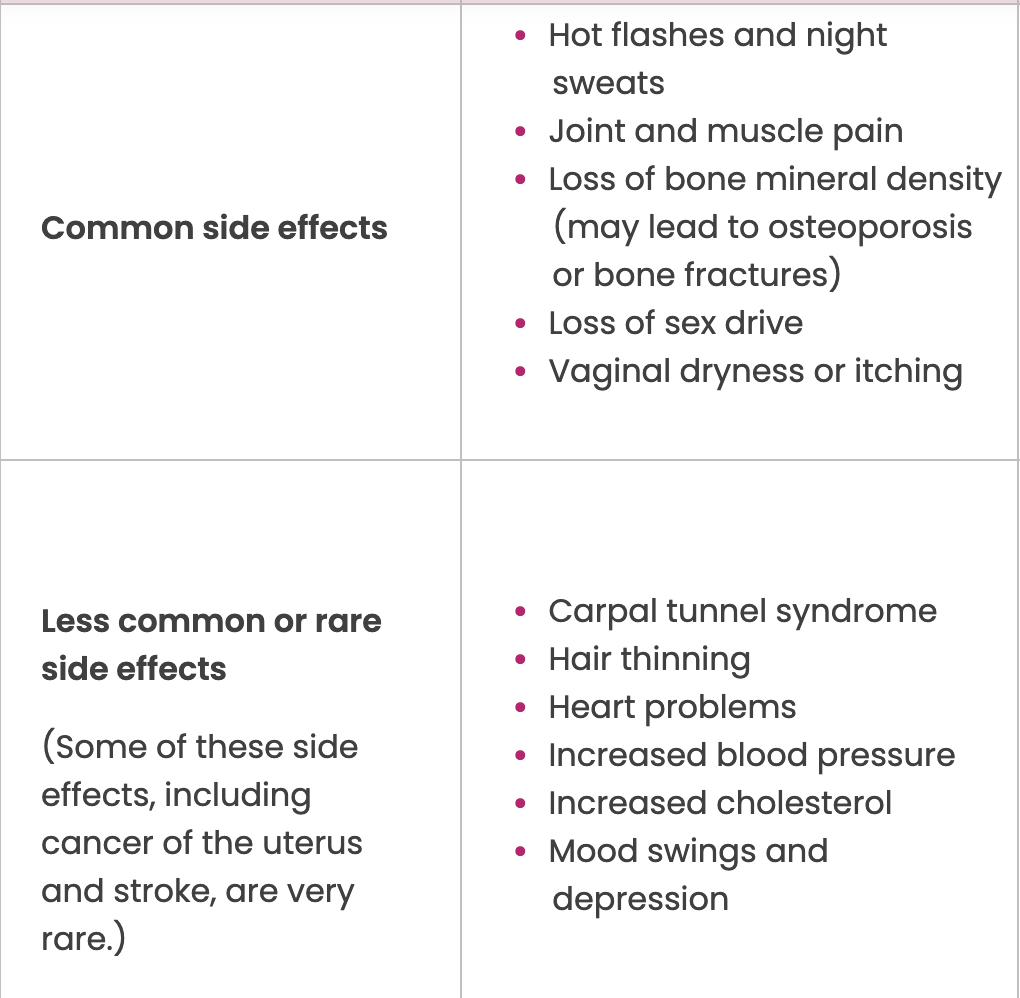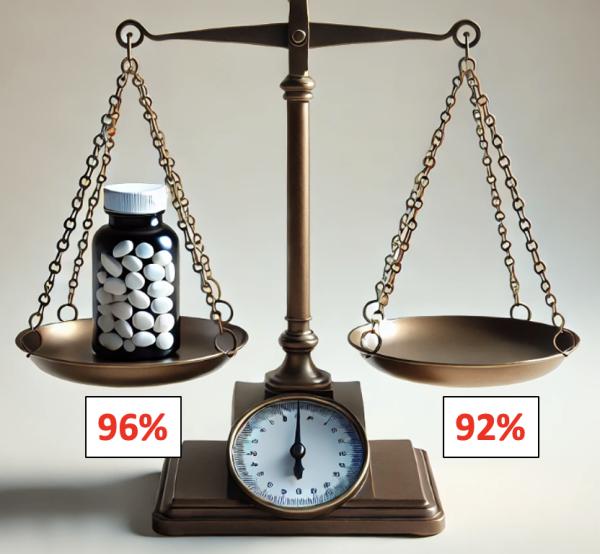A long-time family friend (I'll call her Beth) received mixed news earlier this year. She was told that she had breast cancer and would need surgery and radiation. Fortunately, following the operation, her surgeon told her that she was cured and would require no chemotherapy, but he suggested a consult with an oncologist anyway.
We all breathed a sigh of relief.
However, the oncologist, a young woman, felt otherwise and strongly suggested that Beth undergo anti-estrogen therapy with anastrozole – a drug that inhibits the synthesis of estrogen by blocking the action of the enzyme aromatase. Was this a reasonable choice for Beth?
Knowing a bit about oncology, I pressed the doctor, asking if it was correct that most women who had my friend's type of cancer (Stage 2A) would be alive in five years following surgery and radiation, whether they took the treatment or not. I also expressed concern about side effects. Anastrozole is not taken just for a few weeks, during which unpleasant effects could be 'toughed out'; it is taken for five years.
It's not clear at this point whether the doctor actually wanted me dead or just looked like she did. Yet, I pressed her for data on Beth's case. Without anastrozole, Beth's odds of five-year survival were 92%. Using the drug raises that number to 96%. The oncologist called this "clinically significant," but is this a wise choice for Beth, who is 69? After all, the drug will help only four women in 100, yet all 100 will suffer the side effects, which the doctor described as "not that bad."
Perhaps this is true from the standpoint of an oncologist; she prescribes far worse drugs than this, but most of the time, it's for people who don't have a predicted 92% five-year survival without treatment. Some patients are desperately trying to survive for an extra six months and will try almost anything to fight back against the cancer.
But for a healthy woman, five years of anastrozole isn't all that pleasant. Here are some of the common and less common side effects:

Source: Susan G. Komen
It turns out that Beth's choice was similar to that of a very famous celebrity seven years ago.
Months following Beth's decision to forgo therapy, Drs. Vinay Prasad and Adam Cifu discussed the same decision that actress/model Elle Macpherson had to make seven years ago in their Sensible Medicine Substack article:
'Elle Macpherson Made a Reasonable Choice, and Naturopathic Medicine Did Not Help'
Without knowing the precise details, the magnitude of the benefit is typically 2-7%. To give some rough (and plausible numbers), 16 women out of 20 might be cured by surgery alone, but 17 women out of 20 would be cured with surgery and chemotherapy. Put another way, 20 women have to take chemotherapy so that 1 more is cured. And, sadly, 3 will have recurrence no matter what they do.Prasad and Cifu, Sensible Medicine, Sept. 5, 2024




